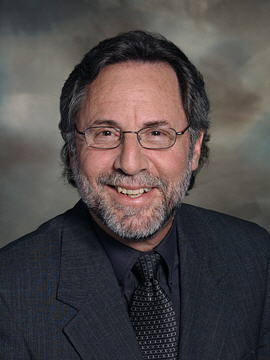
By Andrew Cohen
Berkeley Center for Law & Technology (BCLT) Executive Director Robert Barr has been named to Intellectual Asset Management’s IAM 250—a directory of the world’s top intellectual property strategists.
IAM describes its top-250 list as “those individuals who offer world-class services relating to the development and implementation of strategies which enable IP owners to maximize the value of their rights portfolios.”
Barr began his professional career teaching at Berkeley Law before moving into patent practice in Silicon Valley. While a partner at three area law firms, he helped create the field of patent strategy and counseling for technology companies and played a vital role in securing Netscape’s rights to market its pioneering web browser.
Moving in-house, Barr served as vice president for intellectual property and worldwide patent counsel for Cisco Systems—where he built that company’s visionary patent program and oversaw all patent prosecution, licensing, and litigation.
“Robert has had a huge impact on the intellectual property community,” says Mallun Yen ’95, who was the first attorney Barr hired at Cisco and eventually replaced him as the head of its worldwide IP when he left to run BCLT in 2005. Bart Showalter, the firm-wide chair of IP at Baker Botts, describes Barr as “an important mentor … how he treats people resonates with everyone who has worked with him.”
Pushing BCLT to New Heights
Upon returning to Berkeley Law in 2005, Barr used his many connections with top Bay Area computer, Internet, and digital entertainment companies to expand the BCLT community. Under his leadership, the center has expanded its programs and research on key issues at the intersection of new technologies and the law.
“Robert has become an essential part of BCLT’s strength,” says faculty co-director Pamela Samuelson. “He has made us effective in fundraising, getting our research out, and hosting important events such as the recent Federal Trade Commission hearings on patent and antitrust issues. We feel much more connected to important real-world issues since his arrival.”
Because the IAM 250 is designed for senior executives at IP-owning organizations, members can’t work for an operating company or one that deals mainly with acquiring IP rights for licensing purposes. Eligible for inclusion are all others working in IP-related professions such as intermediaries, financiers, consultants, and lawyers.
To construct its list, Intellectual Asset Management magazine undertakes an extensive research process that includes communicating with IP professionals throughout the world. IAM 250 members can only qualify for selection if they’re nominated by at least three people who work outside the nominee’s organization.
Barr’s impact on Berkeley Law and intellectual property is honored in perpetuity through a scholarship created in his name last year. Three of his former co-workers—Yen, Showalter, and G. Hopkins Guy III—raised about $300,000 to launch the scholarship, awarded each year to a student who has demonstrated financial need and a strong interest in technology law. The recipient receives $10,000 per academic year, and engages in specialized studies with Barr and other prominent IP scholars at the law school.